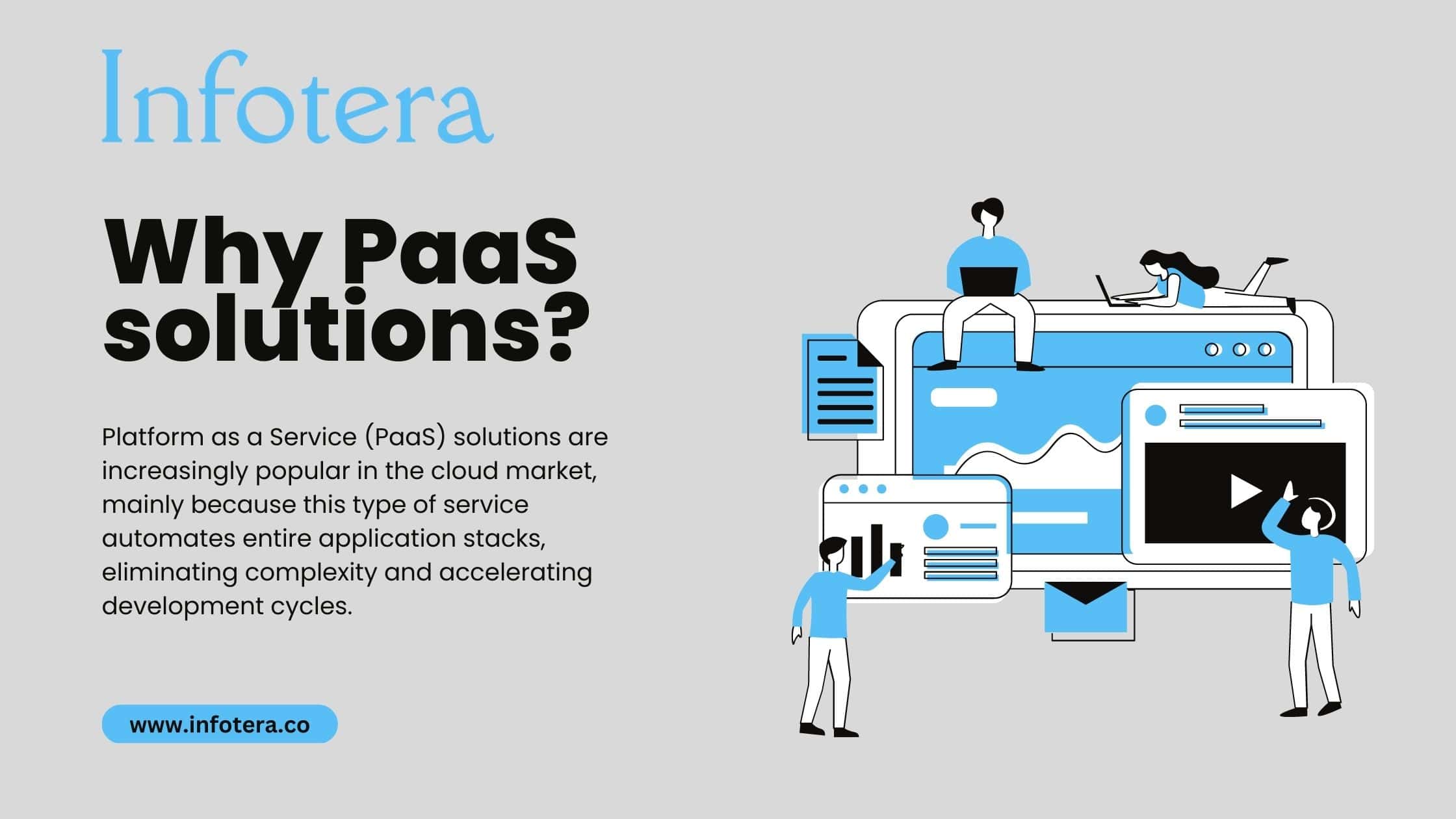Platform as a Service (PaaS) solutions are increasingly popular in the cloud market, mainly because this type of service automates entire application stacks, eliminating complexity and accelerating development cycles.
In addition, it also provides scalability and cost benefits for organizations looking to bring applications to market quickly without breaking the bank. PaaS solutions can help companies build and manage their applications more efficiently, while providing access to a wide range of services including storage, networking and analytics.
As such, PaaS can provide businesses with the opportunity to innovate faster and better respond to customer needs. With its ability to allow for rapid deployment of projects, PaaS solutions have become an attractive option for organizations looking to take advantage of the cloud’s scalability and cost savings.
As such, PaaS solutions are set to play a major role in the growing trend towards cloud services. In conclusion, with their automation capabilities and scalability benefits, PaaS solutions can be an excellent choice for companies looking to take advantage of cloud technologies for their applications.
What is PaaS?
Platform as a Service (PaaS) is a form of cloud computing that provides users with an integrated platform for creating, deploying, managing and scaling applications.
With PaaS solutions, service providers manage both hardware and software aspects of the application lifecycle, including operating systems, servers, storage and networking components. This makes it easier for organizations to focus on developing and running their applications, rather than having to manage the underlying infrastructure.
This can lead to faster development times, cost savings and improved scalability as organizations can quickly deploy or scale their applications without needing to worry about the complex details of managing hardware.
PaaS solutions are an attractive option for many organizations, allowing them to take advantage of cloud technologies while reducing the complexity of managing their applications.
In conclusion, PaaS solutions offer numerous benefits for companies looking to develop and deploy applications quickly and cost-effectively. As such, they are set to play a major role in the growing trend towards cloud services.
By providing an integrated platform on which organizations can create and manage their applications, PaaS solutions can help them to innovate quickly and better respond to customer needs. With its ability to automate entire application stacks, PaaS will continue to be an attractive option for companies looking to take advantage of cloud technologies in the future.
PaaS advantages
Platform as a Service (PaaS) solutions offer organizations numerous advantages when compared to other cloud models, such as Infrastructure as a Service (IaaS).
With PaaS, service providers manage both hardware and software aspects of applications, making it easier for companies to focus on developing and running their applications rather than having to worry about the underlying infrastructure.
This can lead to faster development times, cost savings and improved scalability as organizations can quickly deploy or scale their applications without needing to manage the complex details of managing hardware.
PaaS solutions are also an attractive option for many companies looking to take advantage of cloud technologies but do not have the resources or expertise to manage their own infrastructure.
With its ability to simplify the application stack and automate processes, PaaS solutions can help businesses launch applications quickly and cost-effectively. This makes it an ideal choice for organizations looking to bring their products or services to market faster.
You May Also Like:

